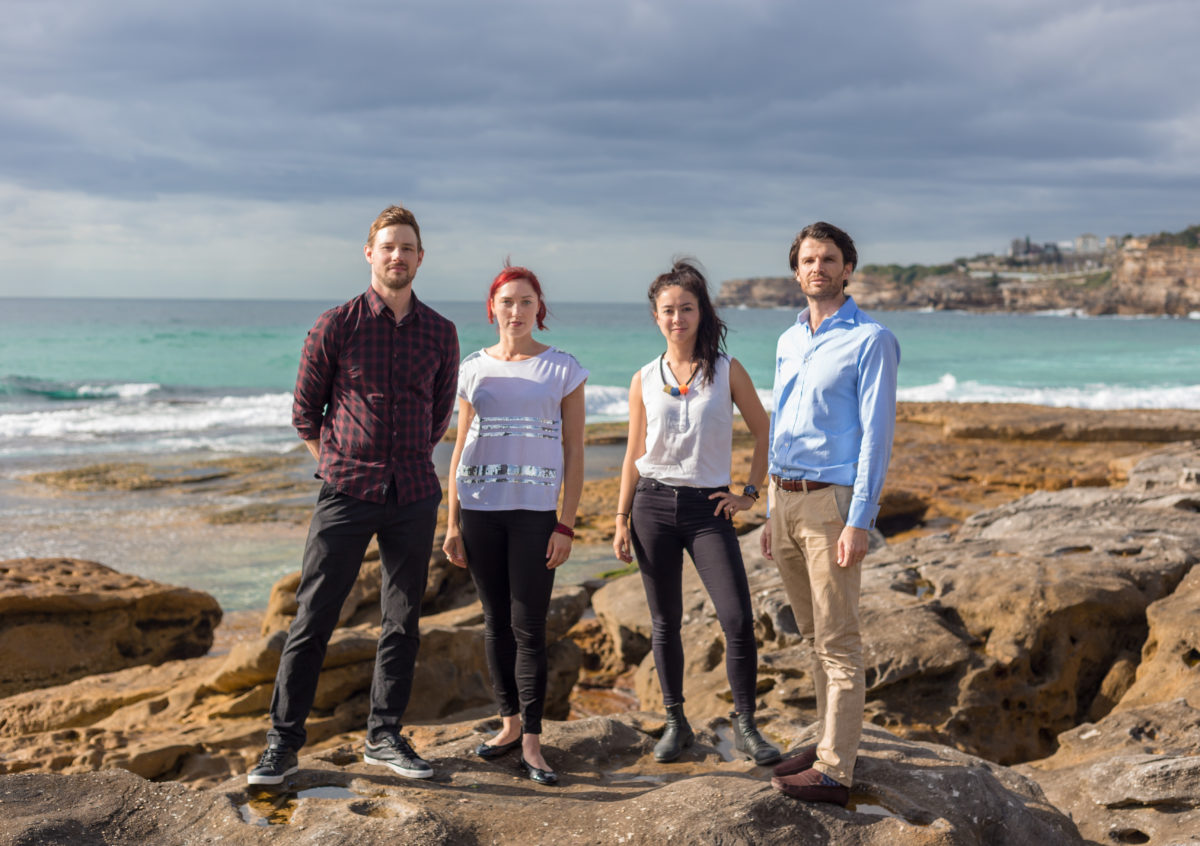Plug-’n’-play, sophisticated, smart … BlueVolt is a flexible, owner-installable, self-designing solar system set to transform the power balance in urban environments. Currently in development, this hot intellectual property is the perfect match for the aspirations of new Mirvac/INCO Impact Accelerator, which is focused on making Australian urban life sustainable.
INCO, supported by real estate group Mirvac, brought it’s globally renowned France-based startup accelerator model to Australia in September this year, with the aim of seeding a socially inclusive and environmentally sustainable urban economy.
“I don’t expect a lot from politics globally, but I think entrepreneurship will make a change,” INCO founder Nicolas Hazard told Sky News at the time of the Impact Accelerator launch.
In late October, it announced its first cohort, which includes BlueVolt, along with several other “entrepreneurs who aim to sustainably solve the challenges of tomorrow’s urban real estate”.
Out of the lab and into the elevator
BlueVolt is the brainchild of Dr Matt Edwards, PV research scientist and Technology Transfer Manager at the University of New South Wales (UNSW) School of Photovoltaic Renewable Energy Engineering (SPREE).
Edwards told pv magazine, “The commoditisation of solar means it all comes down to cost per watt, and that has helped the industry take off, but once you’ve got cost and performance ironed out, there’s still a large segment of the population that just likes solar power and wants to be able to use it.”
Operating deep in the labyrinths of concentrated solar-cell research, Edwards says, “You start to notice gaps in the market. You wonder: Why isn’t this done differently?”
The size of rooftop solar panels, and the requirements for individual system tailoring, design and professional installation have relegated a large segment of the market to the fringe of the solar boom.
“We saw a need to make solar more of a consumer device, to make it a bit sexier, more beautiful,” says Edwards. “We’re designing something small, but that has the smarts so you can easily set it up yourself and add to it until it’s the perfect system for your situation.”

Image: BlueVolt
360-degree solar communities?
INCO Australia’s website posits that, “More than half of the global population now lives in cities.” These city ecosystems enable significant economic growth, but they are also home to “some of our most serious development challenges”.
Edwards goes further: “One of the ways we can decrease our environmental footprint is to increase the density of our cities, but when you have very dense cities they become harder and harder to power.”
BlueVolt, he says, wants “to bring solar into the cities, to spread it out and match it up better to daytime loads, and also back it up with battery storage, so that we have a more balanced and reliable grid.”
The team is bursting with tell/not tell anticipation as it works toward release of its first products, but won’t reveal more at this point other than that BlueVolt’s flexible, compact, modular solar systems will “enable communities of solar generators”, and that BlueVolt “plans to launch overseas wherever there are high concentrations of urban dwellers”.
The company’s technology, which combines innovative, energy-dense hardware and smart software, has been in development since 2016, and is expected to be ready for launch in Australia towards the end of summer 2019-2020.
Back in 2017, BlueVolt was among the alumni of EnergyLab Acceleration Program’s first cohort of entrepreneurs, and Edwards says that such supported, mentoring environments are valuable to his group, of whom three out of four are scientists.
Hitting the accelerator
“We’ve done a lot of technology transfer to different solar manufacturers all around the world,” he says. LG, Suntech, REC, and Meyer Burger are among the partners who have benefitted from their research within SPREE at UNSW.
The BlueVolt founding team includes Dr Alison Wenham (daughter of late solar inventor and research legend Professor Stuart Wenham, Director of the Photovoltaics Centre of Excellence), and Dr Catherine Chan, who are working both together and individually on a number of research projects funded by the Australian Renewable Energy Agency.
These include improving the quality of low-cost silicon through hydrogenation, and developing bifacial plating of solar cells for use both in bifacial modules and for collection of energy reflected from the backsheet in non-bifacial modules.
Says Wenham, who started her career as an electrical engineer designing energy systems for buildings such as Star Casino in Sydney, “Working with BlueVolt, I can combine my PV with my experience in generating power for buildings in a way that’s helping society and the grid.”
She adds, “I’m super excited to be applying our research not only to advancing solar manufacturers, but to address a whole new market and really make a difference out there.”
Chan also tells pv magazine, “I’ve never had a chance to work with systems or be part of a startup environment. It’s a nice change from research, which is exciting, but it’s great to branch out.”
Edwards’ point is that in commercialising a complex but easy-to-use product, the group which is completed by his co-founder, Sam Wagner, an energy markets professional, needs mentorship in the skills and best practice of running a business, marketing, branding, issuing shares and so on.
“There are lots of different areas where the Impact Accelerator can help us out,” he says. “The other aspect that’s really attractive is the potential to do trials and pilots and work in cooperation with Mirvac, because we think their products combined with our products are a match made in heaven.”
With the help of Impact Accelerator, BlueVolt is poised to add attractive solar generation (words not usually used in the same sentence) to the sunny-side surfaces of every urban eyrie.
Although Edwards recognises that parts of the solar market are “quite saturated”, he says that the industry “is still in its infancy, and there are lots of ways to make your mark”.
This content is protected by copyright and may not be reused. If you want to cooperate with us and would like to reuse some of our content, please contact: editors@pv-magazine.com.









By submitting this form you agree to pv magazine using your data for the purposes of publishing your comment.
Your personal data will only be disclosed or otherwise transmitted to third parties for the purposes of spam filtering or if this is necessary for technical maintenance of the website. Any other transfer to third parties will not take place unless this is justified on the basis of applicable data protection regulations or if pv magazine is legally obliged to do so.
You may revoke this consent at any time with effect for the future, in which case your personal data will be deleted immediately. Otherwise, your data will be deleted if pv magazine has processed your request or the purpose of data storage is fulfilled.
Further information on data privacy can be found in our Data Protection Policy.